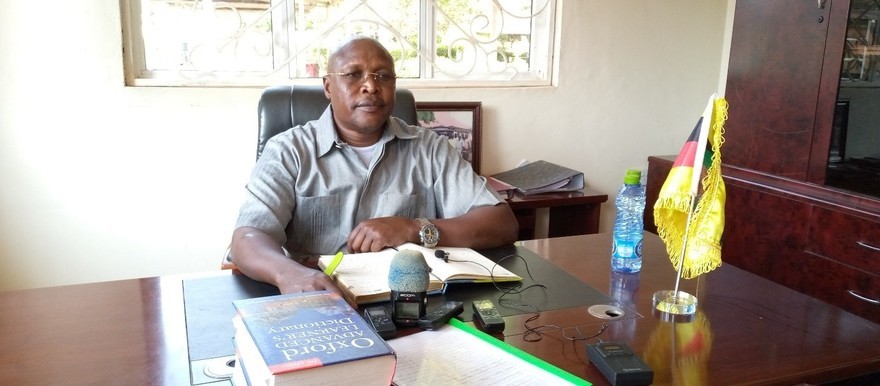Governor Lobong urges youth to remain calm as gov't settles standoff

Eastern Equatoria State governor Louis Lobong Lojore while urging youth to exercise restraint, says humanitarian organizations will resume operations in Torit County as soon as a probe into youth grievances is completed.
Last Wednesday governor Lobong directed all United Nations agencies and Non-Governmental Organizations in Torit County to suspend operations for a week as it addresses the recent tensions between the youth (Monyiemiji) and humanitarian workers.
The growing tensions have led to the assault of humanitarian workers in the area as the youths complained of unfair employment in Torit, Ikotos, and Lopit areas.
In mid-April, the state government formed an eight-member committee to listen to the grievances raised by a youth group, Monyiemiji Forum.
Speaking exclusively to Radio Tamazuj, Governor Lobong said, "The committee is still working. So for it to work effectively, they need to follow the law that guides the NGOs in the area. They need to engage officials in the ministry of labor, they will also identify how this committee should work with the NGOs and UN. So the committee is still engaged in communications with the SSRRC office in Juba and the Ministry of Labor in Juba."
According to him, the youth took matters into their own hands before consulting the committee which has representatives from the youth themselves.
"Anything that you want to bear good fruit, you need to go slow without causing any problem. Hurrying up and fighting will not bring any solution to any problem. Instead, it will increase the issue," he added.
Lobong said NGO workers should remain in the homes during the seven days until the government directs otherwise. He said any assault that will take place during this time will be treated as a crime.
"Within these seven days, we expect all NGO staff to remain in their houses or their compounds. That means they are not allowed to move around in cars. This would put their lives at risk. If you decided to attack people in their houses or on public roads this would be regarded as a criminal or thief," he said.
He emphasized that South Sudanese citizens have a right to live in any part of the country without victimization.
Governor Lobong said no one has been arrested in connection to the assaults but encouraged all those affected to seek legal redress.
Responding to why youth would resort to such acts, Lobong said, "The first thing is that the economy of the country is still weak. Government is unable to pay a good salary that can sustain the lives of the employees and yet the cost of living is high. So the only source that pays good money is the NGOs and everybody wants to work with NGOs."
Another reason he says, "Our South Sudanese youth are not initiators which means they don’t want to create work for themselves. The majority of them want to work with NGOs rather than engaging themselves in the private sector. Such as cultivation, business, laying bricks, and many things that can generate income. They only want to work in the office. Many foreigners are here and they got jobs to do and many more are trying their best to enter South Sudan so as to come and work. But our local youth don’t want to work."
Governor Lobong says although the suspension would affect the vulnerable population, the life of humanitarian workers is equally vital.
"It will affect the vulnerable groups which used to get food rations from the UN," he said. "But now, the lives of the NGOs staff are also very important. That is why we are trying to solve this problem within the given timeframe of seven days."
He concludes by saying the committee findings will advise further action. The findings are expected this week.